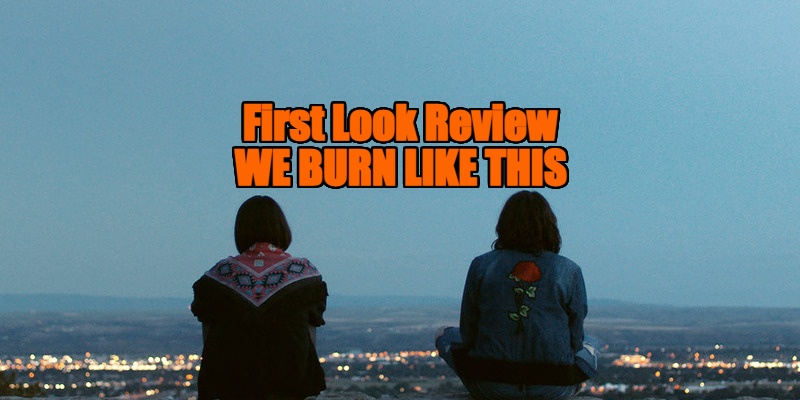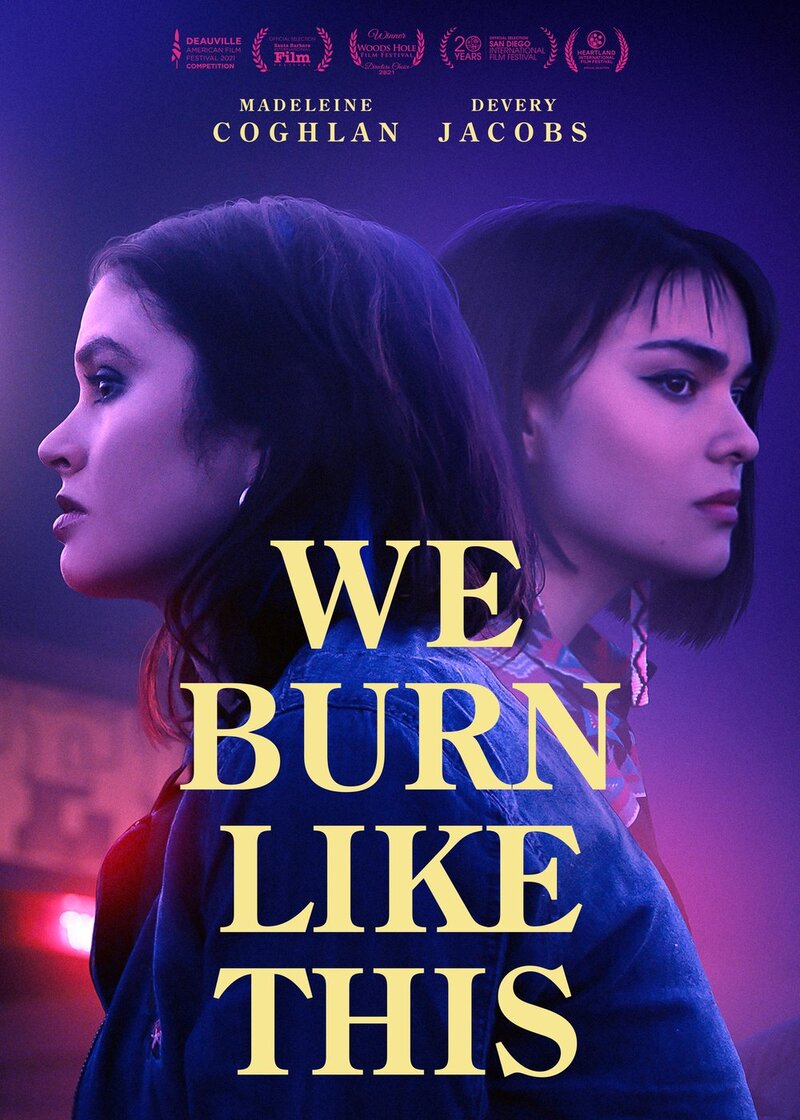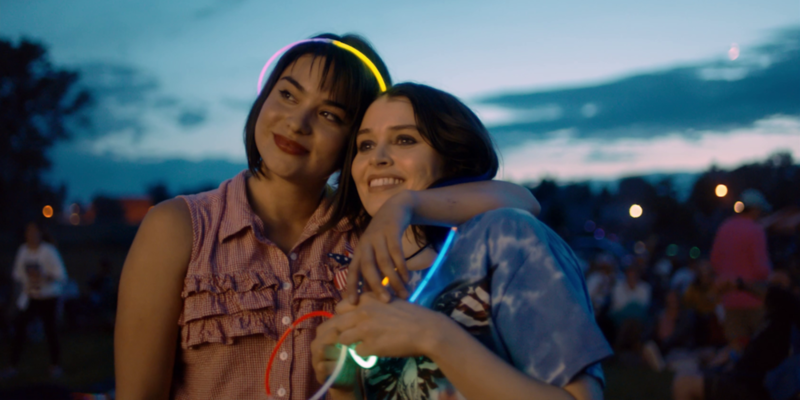
A descendant of Holocaust survivors reconnects with her faith amid rising
anti-semitism in her town.
Review by
Benjamin Poole
Directed by: Alana Waksman
Starring: Madeleine Coghlan, Devery Jacobs, Angelo
Rizzo, Kendra Mylnechuk, Casidee Riley, Megan Folsom

State of this world, though. I can’t be certain of it, but it seems these
days that we’re getting even more racist and actively hateful towards one
another. Search #jews or #mulsims (spelling the word incorrectly will
reveal further clumsily vile responses) on Twitter, etc, to prove my
point. Don’t even bother with the dedicated right wing freeze peach sites.
You already know what will be there. Perhaps we’ve always been a mob of
odious pricks all along, yet recently, certain platforms, which allow
subterfuge and a degree of anonymity, have not only offered a forum for
such sentiments but a space where such ideologies can thrive via the toxic
connections which social media engenders. Antisemitic attacks in the US
numbered over a thousand in the last year, and those are just the ones
which have been recorded. There’s no accounting for the snide remarks or
the low-level ignorance which is the lingua franca of the everyday racist
and their everyday racism. Viewed within this context,
Alana Waksman’s We Burn Like This would seem a timely
directive. Focusing on the life of a young Jewish woman, Rae (Madeleine Coghlan), whom the film’s publicity blurbs as "a descendant of Holocaust
survivors." We follow Rae as she navigates the usual vicissitudes of
growing up, along with the routine antisemitism which she faces.

We Burn Like This sets its stall early. Over Hebrew chanting
a forlorn female voice intones about identity and who she is, before an
Instagrammy montage of young women out and about doing young people things
colourfully contrasts the angst (hang on, let’s give it a chance, etc).
Rae carries about in the same way that I imagine most of us did when we
were in our twenties: falling out with friends, dating or not, getting off
her face. We Burn Like This, however, treats this rather quotidian continuation as the stuff of high
drama. For instance, Rae fancies her roommate’s fella. When said pal and
handsome beau go on a date, this spirals Rae into a fit of stubborn
melancholy, and, to the sort of lachrymose needle drop not heard since
Dido squatted upon the charts like the Jonah at a hen night, she goes out
to a bar and sits there drinking alone. Come on, mate. Pull yourself
together. At the bar a bloke offers to buy her a drink and proceeds to get
arsey when she refutes him: the film attempts an essay in toxic
masculinity here, but with an archetypal winsome lovelorn girl and her
entitled frat boy counterpart, both with their matching senses of
entitlement, the stereotyping is too limited to convince.

This is before we get to the drugs. En route from the bar, Rae stumbles
upon a house party, where the host cheerfully shares his stash with this
perfect stranger. A charmed life, you may think. But no.
We Burn Like This frames Rae having a dreamy bop gently off
her tits on opioids as A Very Bad Thing. Jesus, it is 2022! One would hope
that a Serious Film would approach the matter of controlled substances
with a more even handed, complex approach. Instead, we just see Rae wake
up on her couch with a little pile of sick next to her, which, let’s face
it, has probably happened to thousands of people her age this morning
(alright, she does end up in A&E later, but this is signalled as an
inevitability by the narrative from the off). To add an unintentionally
funny patina to her hungover scenes, as she wakes up Coghlan has been made
up to resemble Siouxsie Sioux coming off stage at the 100 Club - all kohl
eyes and shocked hair!

What is also worthy of more serious consideration is the racism which Rae
experiences. She volunteers to scrub clean graffiti swastikas (which,
again, is it me or are these on the rise, too? Some thickos sprayed one on
the lamppost outside our East-European descended house when I was a kid -
in my naivety I’d hoped those days were gone), which is an indication of a
wider malaise. But, eeesh, most of the other occurrences of antisemitism
Rae encounters are incidental, and seem almost forced into the narrative -
a bloke casually states that a pair of eyes look "kind of Jewishy," while
a character asks what a Hamsa is ("a whatsa?"), and there are cheesy AF
door to door Christians (again, in a film which broaches social injustice,
the stereotyping helps no one). While it is incontestable that this sort
of ignorance abides within the real world, in
We Burn Like This they seem a bit clumsy and forced, insult
to the injury of Rae’s overblown social life. In fact, seeing as the
narrative drive hinges on a long-ago domestic accident which left Rae’s
chest scarred, you could take out the antisemitism and have almost the
same movie. We Burn Like This purports to be serious, but
the jejune framing of Rae’s experiences, and the self-pitying tone of the
film, undermines its impact.

We Burn Like This is on US VOD
now. A UK/ROI release has yet to be announced.

